Current News
/ArcaMax

Hearing for judge accused of helping man sought by ICE escape begins Monday
Half-a-decade after she was charged with several serious federal crimes, a Massachusetts judge will finally have her day in court — sort of.
In a case bearing striking similarity to a more recent arrest of a judge from Wisconsin, former Newton District Court Judge Shelley Joseph will appear for a Massachusetts Commission on Judicial Conduct ...Read more

New details emerge in Officer Krystal Rivera's mistaken fatal shooting by her partner as man charged in connection with case is ordered detained
Moments before her death Thursday night, Chicago police Officer Krystal Rivera and her partner were rushing after a person they’d just attempted to stop on suspicion of having a weapon when that suspect ran into an apartment building located at 8210 S. Drexel Blvd., prosecutors said Sunday.
Inside one of the building’s apartments, Assistant...Read more

'Can't be silent anymore': Hundreds march in Florida city to combat surge in antisemitism
American and Israeli colors lined the streets of Aventura, Fla., where a crowd of more than 500 people embarked Sunday on a three-mile march — escorted by police — to raise awareness for rising antisemitism at home and abroad.
The rally, co-organized by Run for Their Lives and the South Florida-based Loving Moms United movement, comes ...Read more

Salmonella recall of 20 million eggs from Walmart, Safeway, Ralphs, among others
Another salmonella outbreak caused the recall of 1.7 million dozen eggs — meaning roughly more than 20 million less eggs to fry — and has sickened people in seven states.
The aforementioned eggs were distributed to Walmart, Safeway, chains owned by Kroger and various other independent and chain supermarkets.
Hilmar, California’s August ...Read more

Baby swabs and nasal swabs recalled for possible fungus in swab parts
Swabs for teething babies and adult noses have been recalled because they might have a microbial contamination “identified as fungi in cotton swab components.”
That’s what manufacturer Church & Dwight said in its notice announcing the recall of Orajel Baby Teething Swabs, Zicam Cold Remedy Nasal Swabs and Zicam Nasal AllClear Swabs from ...Read more

Trump's transgender, DEI policies raise stakes as Michigan's LGBTQ community marks Pride
As the Trump administration aggressively targets diversity, equity and inclusion initiatives across the country, thousands gathered in downtown Detroit for the city's annual Pride festival over the weekend with many saying it was a form of protest as much as it was a celebration.
The two-day event in Hart Plaza, the largest Pride celebration in...Read more

Immigrant advocates encourage Pa. residents to 'raise their voices' amid increased ICE arrests
Dozens of Norristown, Pa., residents stood on the corner of West Marshall and George Streets on Saturday, enduring the rain in support of their immigrant neighbors.
Following weeks of intense ICE presence in the Montgomery County seat, organizer Denise Agurto, 47, asked all undocumented neighbors to go home for their safety.
“This is the ...Read more
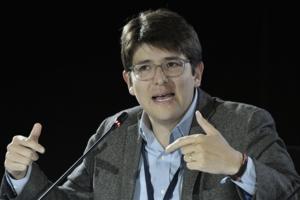
Fears of violence revived after Colombian senator shot in head at campaign rally
Miguel Uribe Turbay, a Colombian senator and presidential hopeful, is in critical condition after being shot in the head at a campaign event in Bogotá on Saturday.
Analysts describe the attack as the latest sign of Colombia’s deteriorating security situation and deepening political polarization, warning of a return to the dark era of ...Read more

Trump travel ban stuns NYC 's sprawling Haitian community
President Trump’s new travel ban has sparked widespread outrage and fear in New York’s sprawling Haitian community, by far the biggest local diaspora group impacted by the edict aimed at 12 nations.
Pastors, shopkeepers and community leaders worried out loud that their community would seek to stay out of sight to avoid any contact with ...Read more
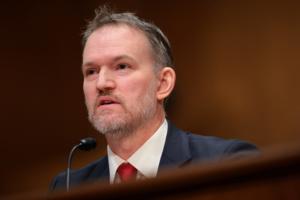
US, China to resume trade talks with focus on rare earth exports
Top trade negotiators from the U.S. and China are set to hold fresh talks in London on Monday, offering a glimmer of hope that the world’s two largest economies can defuse tensions over Chinese dominance in rare-earth minerals.
Both sides have accused the other of reneging on a deal in Geneva in May where they tried to start dialing back ...Read more
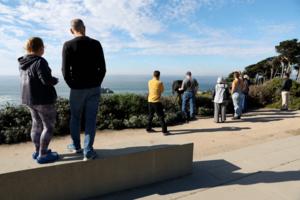
California tsunami: Here's where damage and casualties could be the worst
Tsunamis pose a risk to the entire California coast. But should a major one strike, how bad could it be?
A single tsunami likely won't cause the worst-case scenario for every region. But in total, more than 680,000 Californians are in a tsunami hazard area during the daytime. And in all, $12.6 billion in damage is possible across California's ...Read more
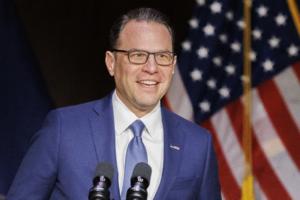
Pa. stares down bumpy budget battle as Gov. Josh Shapiro faces swirl of issues and divided Legislature
HARRISBURG, Pa. — A Pennsylvania budget season unlike any other has arrived in Harrisburg, and the pile of challenges facing negotiators ahead of the June 30 deadline appears immense.
A new administration in Washington, D.C., is orchestrating massive reductions in programs with federal-to-state money flows. Mass transit faces a financial ...Read more
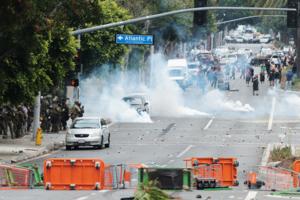
Trump deploys National Guard to LA over Newsom's objections
National Guard troops arrived in Los Angeles on Sunday under orders from President Donald Trump, escalating a showdown with California leaders who say the federal deployment is politically driven and unnecessary.
The move follows two days of tense protests sparked by sweeping U.S. immigration raids across the region. Trump directed U.S. ...Read more
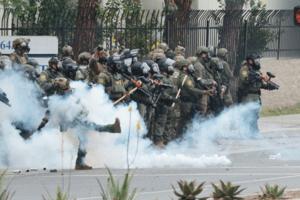
News Analysis: A political lesson for LA from an unrestrained president
When racial justice protests roiled cities across America at the depths of the pandemic, President Trump, then in his first term, demonstrated restraint. Threats to invoke the Insurrection Act and to federalize the National Guard never materialized.
This time, it took less than 24 hours of isolated protests in Los Angeles County before Trump, ...Read more

Karen Read defense case is double as long as last year. Will it end this week?
Karen Read retrial jurors could enter deliberations possibly this week as the defense’s case has already doubled its length from last year.
“They’ve presented a lot more evidence than most murder defendants,” retired state Superior Court Judge Jack Lu told the Herald on Saturday. He later added, “Many put up little or no evidence and ...Read more
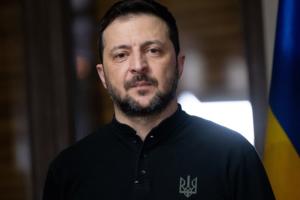
Ukraine rejects claim Russian forces enter key central region
Kyiv’s armed forces rejected as “disinformation” Russia’s claim that its ground troops have crossed into Ukraine’s Dnipropetrovsk region for the first time, even as prospects for a U.S.-brokered ceasefire remain elusive.
Separately, Ukraine and Russia continued testy exchanges over the details of a planned large prisoner swap agreed ...Read more
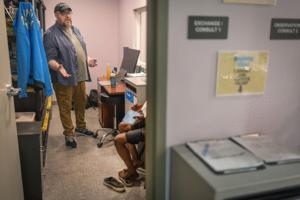
Meth makes comeback in Minnesota in more dangerous and record ways
MINNEAPOLIS — A subtle shift was happening among clients at the north Minneapolis community drop-in center.
For years, people seeking substance abuse services at Anything Helps reported using just one drug of choice. Recently, staff noticed more and more users had expanded their appetite, preferring a combination of drugs at once versus “...Read more

Corporations pull back from LGBTQ Pride sponsorships, affecting South Florida events
FORT LAUDERDALE, Fla. — The LGBTQ Pride month parades and festivals will go on.
But in the current political environment, organizers of the events in South Florida and across the nation are feeling pressure.
Hostility from President Donald Trump’s administration toward anything touching on diversity, equity and inclusion is having an ...Read more

Two patients faced chemo. The one who survived demanded a test to see if it was safe
JoEllen Zembruski-Ruple, while in the care of New York City’s renowned Memorial Sloan Kettering Cancer Center, swallowed the first three chemotherapy pills to treat her squamous cell carcinoma on Jan. 29, her family members said. They didn’t realize the drug could kill her.
Six days later, Zembruski-Ruple went to Sloan Kettering’s urgent ...Read more

Long-thwarted efforts to sell public lands see new life under Trump
Public outcry was swift and forceful after a U.S. House committee last month hastily approved an amendment directing the federal government to sell off more than half a million acres of public land.
A few days later, lawmakers advanced the larger bill — a sweeping list of President Donald Trump’s priorities — but stripped the federal ...Read more
Popular Stories
- 2,000 National Guard troops will be sent to LA amid clashes over immigration raids
- Trump warns Musk will face 'serious consequences' if he backs Democrats
- Two patients faced chemo. The one who survived demanded a test to see if it was safe
- Meth makes comeback in Minnesota in more dangerous and record ways
- 'It felt different': US citizens arriving in Miami report tense encounters with Customs





